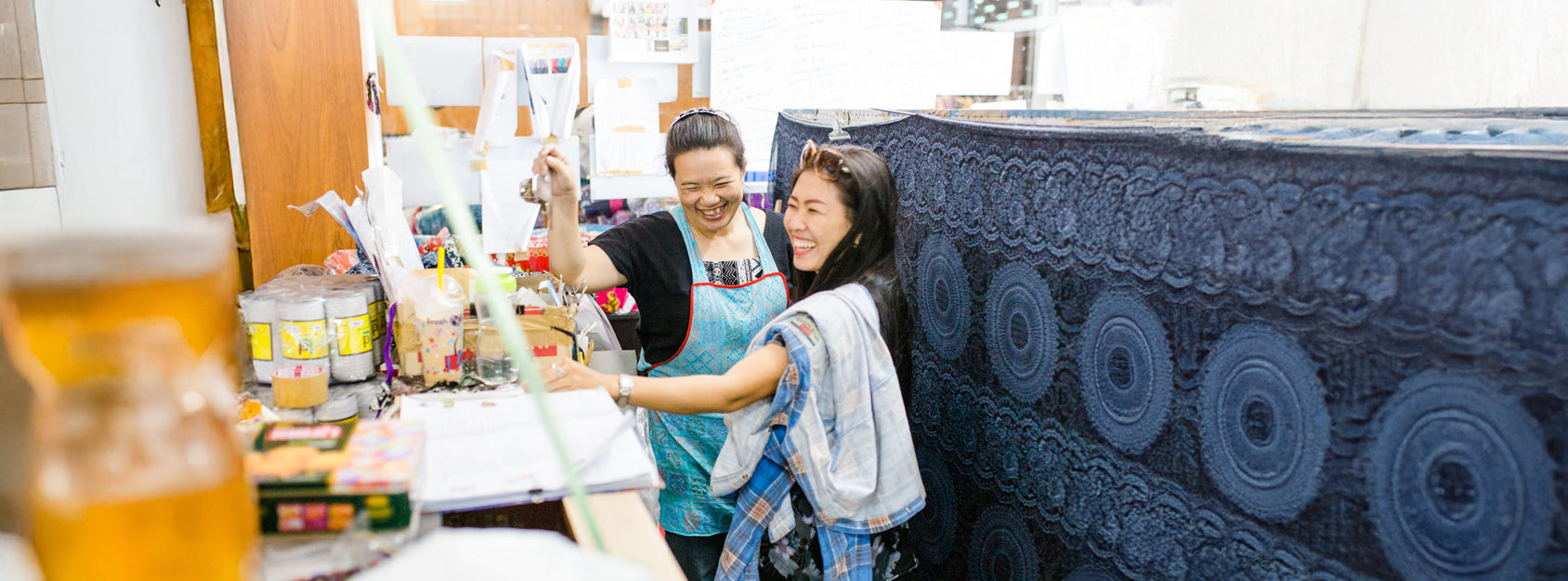
Table of contents
When Mother's Day hurts: A text for everyone who doesn't want to expose themselves to this day (anymore).
Every May, our digital space is filled with floral expressions of gratitude, radiant family photos and loving words to the “best mom in the world.” For many, Mother's Day is an occasion for joy, gratitude - and closeness. But not for everyone. Maybe you'd rather feel far away from it all today. Then this text is for you.
The pain that the calendar triggers
Psychologically speaking, so-called “trigger days” like Mother’s Day can touch deep, unconscious emotional wounds. They bring out memories that you may have carefully locked away - and suddenly they are back. Unasked. Overwhelming.
Maybe you lost your mother - early, late, suddenly or after a long illness. Maybe you never had a mother who really saw you. Maybe your relationship was complicated, distant, ambivalent or even toxic. Or you've been wishing you were a mother for years - in vain. Mother's Day offers no space for all of this in advertising, no menu in the supermarket, no algorithm.
Even though our collective consciousness usually associates Mother's Day with love, warmth and gratitude, it is important to recognize that many people have very different experiences with the topic of "mothers". And that these experiences can be just as real, just as valid, and just as painful.

Picture: Liza Summer / pexels
The invisible grief
Not all grief arises from loss in the classic sense. Particularly painful - and often overlooked - is the grief of a mother who is still alive but emotionally unavailable. This type of grief is particularly complex because it can feel contradictory: How can you miss someone who is there? How can you mourn even though there was no official farewell?
Ambivalent grief: present and yet lost
In this context, psychological studies speak of “ambivalent grief” or “ambiguous loss”. This term was coined by renowned psychologist Pauline Boss and describes losses in which the affected person is physically present but emotionally or psychologically absent. A mother who is alive, but e.g. Being unable to form a loving bond, for example due to mental illness, emotional coldness, addictions or profound conflicts, can leave a large void - a vacuum of closeness that is difficult to name and even harder to mourn.
This wound becomes particularly visible on Mother's Day: when everyone celebrates their connection, but your own connection is characterized by pain, disappointment or emptiness. This can trigger deep feelings of guilt - because “you love your mother”. And yet it is precisely this inner conflict that makes Mother's Day so painful for many.
It's important to allow yourself to take this pain seriously. Even without a visible farewell. Even without a funeral or obituary. Even without outside understanding.
Tremendous grief: pain without language
In addition to ambivalent grief, there is also another form: the so-called “tremendous grief” (disenfranchised grief) – that is, grief that has no recognized outlet. It is often quiet, diffuse and not socially accepted unless it is expressed in clear rituals or publicly visible loss.
If you lost your mother early, you may feel that pain every year - not just on this day, but especially clearly today. If you're experiencing a difficult relationship, you may feel torn between a sense of duty and self-protection. If you are unwillingly childless or have a deep desire to have children, every Mother's Day post can be like a small stab in the heart.
These forms of grief are often invisible in our society. They are missing from the images we collectively share. And that's exactly why it's so important to give them space.
Collective rituals vs. individual realities
Mother's Day is a cultural ritual, a collective custom that was originally created as a day to honor mothers - with good intentions. But collective rituals always harbor the danger of overshadowing individual realities. Precisely because they are so emotionally charged, they act like a magnifying glass on personal wounds.
If you can't go along with the general narrative, a feeling of exclusion quickly arises. It's like standing on the sidelines of a big celebration without being invited. And sometimes it hurts just to watch.
You are allowed to feel what you feel
It's okay if you're sad today. Or angry. Or empty. It's okay to turn off your phone, avoid Instagram, snuggle up under the covers, or just go for a walk. You don't have to explain yourself. You don't have to celebrate anything today. And today especially you can give yourself compassion.
Psychologists repeatedly emphasize how healing it can be not to repress feelings, but rather to perceive and name them. Maybe it will help you to write - it can help to sort out diffuse feelings. Or talk to someone you trust. Or to consciously say: “Today is a difficult day for me.”
Because what you feel has meaning. And what you need counts. Maybe today is a day when you can free yourself internally from expectations - including your own.
Naming feelings – and being able to endure them
It can be confusing when sadness, anger, guilt, and even relief coexist. But it is precisely this emotional ambivalence that is completely human – and allowed. Feelings sometimes contradict each other. And yet they can all be there. Maybe it helps not to have to judge them immediately, but to simply allow them to show themselves - at your pace, in your way.
What you can do for yourself
Self-care is more important now than ever. Here are a few suggestions that can help you get through the day well:
-
Allow yourself to retreat: You don't have to function today. You can take yourself out.
-
Talk to someone: If you feel like it, share your feelings with someone who understands you.
-
Create your own space: Maybe you would like to create a little ritual – just for you. Light a candle. Write a letter that no one reads. Cook something that's good for you.
-
Connect with like-minded people: There are communities, forums and blogs where people share similar experiences. Sometimes just reading helps.
-
Exercise & Nature: A walk, a few minutes of fresh air, walking barefoot on the meadow – all of this can be grounding and calming. Studies show that light exercise and contact with nature can demonstrably reduce stress levels.

Picture: Natalia Kolotvina / pexels
You're not alone
As much as it may feel like it, you're not the only person for whom Mother's Day is difficult. There are many quiet stories out there - of star mothers, of daughters who never felt seen, of people who long for a different childhood or for a child that never came.
Maybe today is the day when you take particularly good care of yourself. A warm bath, a cup of tea, a few deep breaths. And if you like, you can also say to yourself: I am enough. I am right, even with my pain.
If you want, you can also consciously decide on this day to do something good for others - not as a distraction, but as a connection. Maybe write to a friend who you know is also struggling with the day. Maybe you'll give yourself a new little ritual that you can repeat year after year - but only if you want it.
What matters: You are allowed to exist today, exactly as you are. In your grief, in your strength, in your vulnerability.
And maybe, just maybe, this text will help you feel a little less alone.
You are seen. You are held. And you are not alone in what you feel. Even today.
And tomorrow?
Maybe tomorrow will be a day that feels easier again. Maybe not. Both are fine. The only important thing is: there is an after. A life beyond feelings of duty and rigid role models. A path that is yours - full of small steps towards self-acceptance. And this path always begins where you are today.
And when this day passes - as every day passes - then something important remains: your story matters. Your feelings deserve space. And you can heal – at your own pace.




























Leave a comment
This site is protected by hCaptcha and the hCaptcha Privacy Policy and Terms of Service apply.